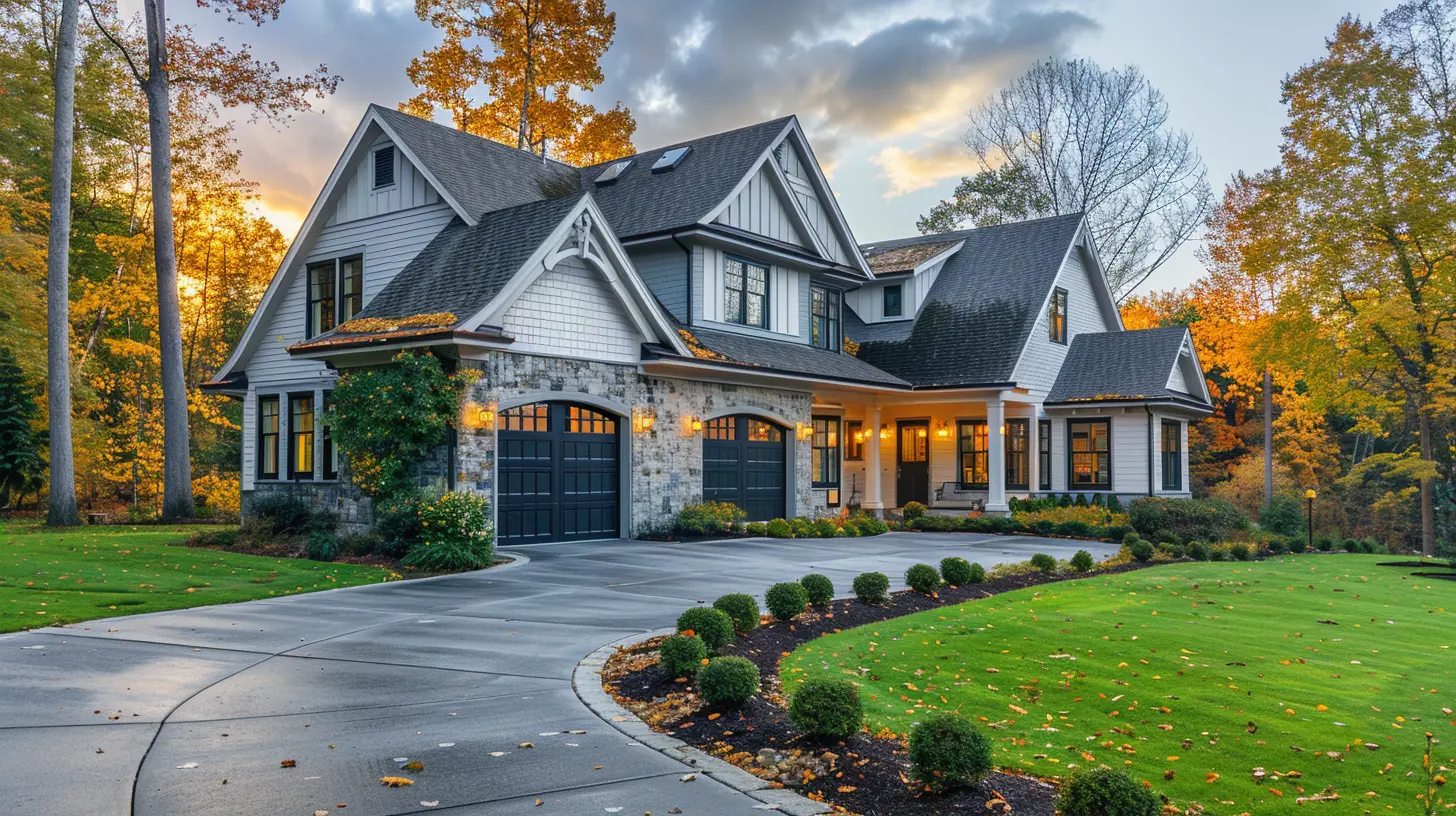5 April 2025
So, you’ve decided to buy a new house—congratulations! Whether it’s your first home, an investment property, or the dream house you’ve been saving for, there’s one thing you’ve probably come across during this home-buying adventure: “settlement fees” and “closing costs.” If you’re scratching your head wondering, “Wait, aren’t these the same thing?”—don’t worry, you’re not alone. These terms often get thrown around interchangeably, but here’s the kicker—they’re not identical. Yes, they’re related, but they have their nuances. Let’s break it all down, piece by piece, so you can confidently conquer your real estate journey without second-guessing yourself. 
What Are Settlement Fees?
Alright, let’s start with settlement fees. Think of settlement fees as the cost of the “behind-the-scenes” work that goes into transferring ownership of the property from the seller to you. This is the final stage of the process where all the nitty-gritty details of the transaction come together.Settlement fees cover services like title searches, paperwork processing, and the involvement of lawyers or escrow agents. Essentially, these fees pay the people (and systems) that work to ensure everything is squared away, legal, and neat by the time the keys hit your hand.
Here’s a quick way to think about it: Settlement fees are like the administrative costs of moving a house purchase from “deal signed” to “deal sealed.” Just imagine you're hosting a big party. Settlement fees would be the costs of hiring the event planner who handles all the details so you can simply enjoy the celebration.
What Do Settlement Fees Typically Include?
So, what exactly falls under the “settlement fees” category? It depends on your location and the specifics of your home purchase, but here’s a breakdown of the usual suspects:- Title Search Fees: This is the cost of checking if the property has any ownership issues like liens, unpaid taxes, or claims from other parties.
- Title Insurance: Protects you (and your lender!) from potential title disputes or legal challenges after the purchase.
- Escrow Fees: If an escrow company steps in to help manage payments and documents between you and the seller, they’ll charge a fee for their services.
- Attorney Fees: In some states, you’ll need an attorney to review your contract and make sure the paperwork is legally sound.
- Notary Fees: Getting all those signatures and documents notarized? That’s another line item under settlement fees. 
So, What Are Closing Costs?
Now let’s switch gears and talk about closing costs. While settlement fees are a subset of costs tied to finalizing the deal, closing costs encompass everything you’ll need to pay when you close on a property. In other words, closing costs are the big umbrella under which settlement fees live.Closing costs include not just the services tied to settlement but also additional expenses you’ll have to cover when stepping into homeownership. Think of it this way: Closing costs are like the “all-inclusive package” for getting your new home, covering things from paperwork to prepaid property taxes. If settlement fees are the event planner, closing costs are like the party itself—venue, catering, decorations, music, and all.
What’s Typically Included in Closing Costs?
Closing costs go beyond settlement fees to include a mix of lender fees, prepaid costs, and local taxes. Here's what falls under closing costs:1. Lender Fees:
- Loan origination fee (what lenders charge you for creating and processing your loan).
- Discount points (optional fees you can pay upfront to reduce your loan interest rate).
- Appraisal fees (so your lender knows the property's value is legit).
2. Prepaid Costs:
- Property taxes (the amount due upfront).
- Homeowners insurance (usually the first year is paid at closing).
- Mortgage insurance (if your down payment is less than 20%, you might owe this).
3. Government Fees:
- Transfer taxes (paid to the state, county, or city when the property changes hands).
- Recording fees (to register the sale with the local government).
4. Other Miscellaneous Costs:
- HOA fees (if your property is within a homeowners association, you might have to pay these upfront).
- Pest inspections or home warranty contributions (sometimes negotiated between buyer and seller). 
So… Are Settlement Fees and Closing Costs Really That Different?
Here’s the thing—they’re related, but settlement fees are just one piece of the puzzle that makes up your closing costs. Think of it like this: You’re assembling a puzzle of a beautiful home at sunset. Settlement fees are one corner of that puzzle, while closing costs are the whole picture.If you’re still unsure about how to differentiate the two, here’s a little cheat sheet:
- Settlement Fees: Focused on the legal and administrative steps of transferring ownership.
- Closing Costs: The grand total of everything you owe when you close the deal—settlement fees included.
It’s easy to mix them up because you’re likely to see both terms on your final closing disclosure. But keep in mind, closing costs = settlement fees + a lot of other stuff. 
How Much Should You Expect to Pay?
Now, here’s the million-dollar question—how much are these fees going to cost you? Well, closing costs typically range from 2% to 5% of the total purchase price of the home. So, if you’re buying a $300,000 property, you could be looking at $6,000 to $15,000 in closing costs.Settlement fees, on the other hand, are just a part of this total. They might make up anywhere from 20% to 50% of your overall closing costs, depending on where you live and how complicated the transaction is.
Pro tip: Always ask your lender or agent for a breakdown of costs before closing day. You don’t want last-minute surprises when you’re sitting at the table, ready to sign your life (and your checkbook) away!
Are These Fees Negotiable?
Yes, kind of. While some fees—like government transfer taxes or recording fees—are pretty much set in stone, others can be negotiated to an extent. For instance:- Compare title companies or lenders to find competitive rates on things like title insurance or loan origination fees.
- Ask your lender if they offer any discounts or can waive certain fees (you’d be surprised how much wiggle room some lenders have).
- Negotiate with the seller to cover part of your closing costs, especially in a buyer’s market.
Remember, the more you know about these costs upfront, the better position you’ll be in to negotiate or plan accordingly.
Tips to Simplify the Process
Let’s face it—settlement fees, closing costs, and all this number-crunching can feel like trying to solve a Sudoku puzzle blindfolded. But you’ve got this! Here are a few tips to make it easier:1. Get a Loan Estimate Early: This will give you a ballpark idea of your closing costs, so you’re not caught off guard later.
2. Ask Questions: Don’t hesitate to ask your lender, escrow officer, or agent for clarification on fees. It’s your money—know where it’s going!
3. Budget Wisely: Factor closing costs into your overall budget from the start. That way, you’re not emptying your wallet on day one of homeownership.
4. Shop Around: Just like you’d shop for the best mortgage rate, compare service providers for things like title insurance or appraisers.
Final Thoughts
Buying a home is an exciting—and let’s be honest—stressful process. But understanding the difference between settlement fees and closing costs can help you feel more in control. Remember, settlement fees are just one piece of the bigger closing costs puzzle. By breaking these terms down and looking at the big picture, you’re one step closer to making your dream home a reality.So, as you head toward the finish line of your home-buying journey, take a deep breath, ask all the questions you need, and, most importantly, celebrate the fact that you’re about to start a brand-new chapter. Oh, and don’t forget to budget for moving day pizza (because, realistically, that’s the best part of the move)!






Morgan McDougal
Settlement fees: the sneaky cousin of closing costs!
April 13, 2025 at 3:05 AM